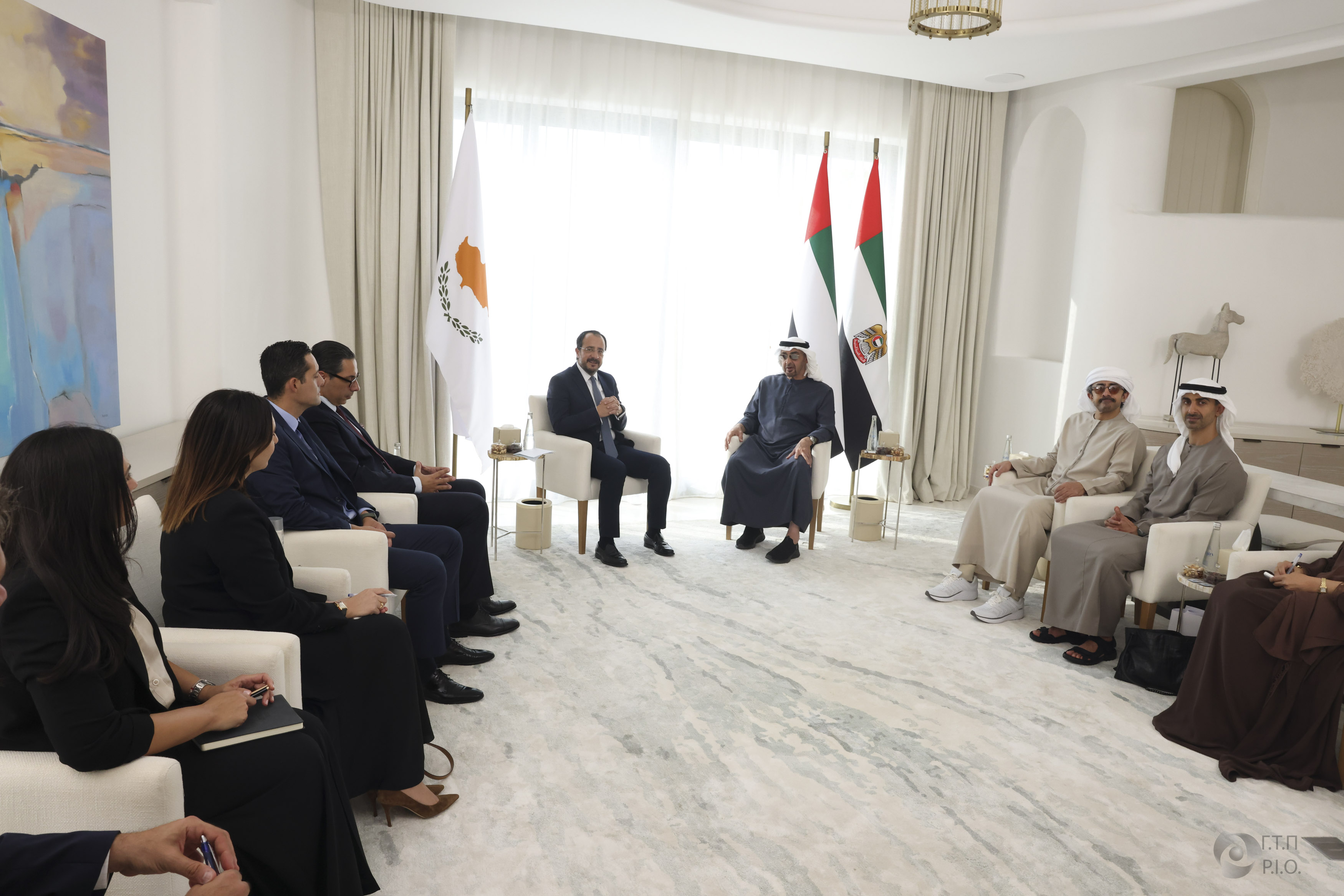Bringing the Emirates into the Great Sea Interconnector (GIS) was at the centre of President Nikos Christodoulides’ trip to Abu Dhabi on Wednesday and the next few days will be decisive, with the president’s upcoming trip to Athens the next reference point on the future of the GSI.
Government spokesman Konstantinos Letymbiotis said there were no pressing timeframes for the GSI but that time was not unlimited either.
The UAE seems particularly interested in picking up the project, which would however also have diplomatic considerations.
The trip to the Emirates came at a significant junction in GSI talks, with Christodoulides pointing out that the timing was not a coincidence.
In statements on Friday, Letymbiotis referred to Christodoulides’ upcoming trip to Athens on September 19 to discuss grid issues with Prime Minister Kyriakos Mitsotakis, saying progress had already been made.
Discussions, he said, were ongoing for the “project of strategic importance”, which was why it was necessary for everything to be clear so that the project could go ahead smoothly and to the benefit of consumers in Cyprus.
The aim, Letymbiotis added, was to achieve an agreement as soon as possible.
Philenews reported that UAE national energy company Taqa was interested in participating in the project.
Taqa is no stranger to Nicosia and connecting the electricity grids of Cyprus, Greece and Israel, as last December Cyprus’ energy ministry, independent power transmission operator Admie and UAE flagship company Taqa had signed a memorandum of understanding for cooperation in connecting the grids.
Christodoulides will be in Athens on September 19 to discuss grid issues with Prime Minister Kyriakos Mitsotakis.
In statements on Thursday, Christodoulides spoke of “progress” in talks between Nicosia and Athens regarding the GSI.
Government sources told the Cyprus Times that developments were expected to unfold over the next few days.
For the first time in weeks, things are looking up and an agreement between Greece and Cyprus was not ruled out, even before the end of the day.
Greek media, citing Greek government sources, reported that Athens is willing to share the cost of the project with Cyprus in case it is not implemented, without Admie taking responsibility, in the case Turkey reacts.
The initial agreement was for the cost to be undertaken 63 per cent by Cyprus and 37 per cent by Greece, given that Cyprus would stand to benefit more from the GSI.
However, a new text provides a 50-50 per cent sharing of costs, so that Greece can actively prove that the project runs no geopolitical risk.
Nicosia is willing to participate in the GSI share capital with €100 million and pay €25 million annually as of January 1, 2025, until the completion of the project, to the implementing body from the revenue of the pollution fund and extend the weighted average cost of capital (Wacc) of 8.3 per cent to the implementing body from 12 to 17 years.







Click here to change your cookie preferences